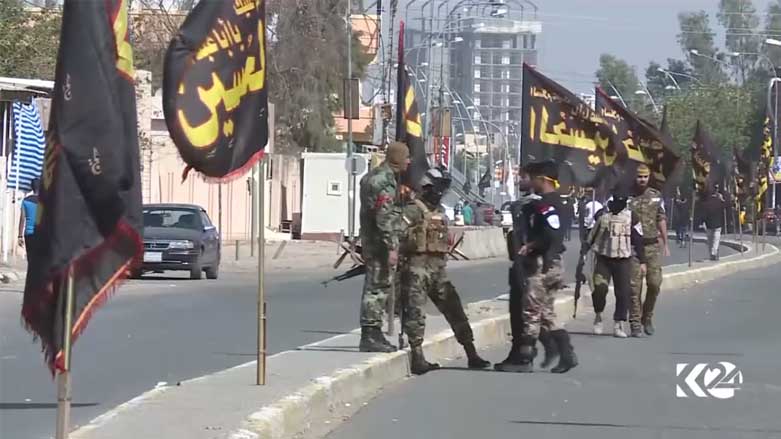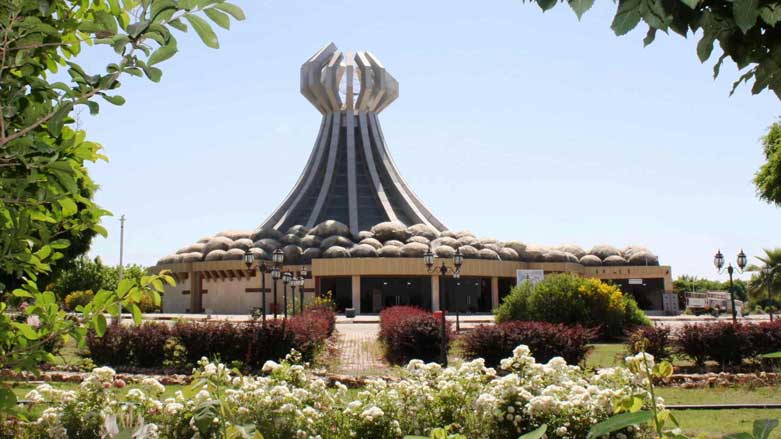Hashd al-Shaabi allegedly recruits Kurdistan youths as ‘border guards'

ERBIL, Kurdistan Region (Kurdistan24) – Two Kurdish youths from the town of Choman in Erbil province told Kurdistan24 that they signed up to be ‘Border Guards’ only to discovered the recruiters belonged to Hashd al-Shaabi.
Kurdistan24 learned that Hashd al-Shaabi was allegedly recruiting Kurdish youths in the Region. Tayfur Mohammed, a Kurdistan24 Correspondent followed the story and interviewed two of the recruited youths in Choman, on the border with the Iranian Kurdistan (Rojhelat).
“I got a call last night. It was about 10:15 pm. They asked whether I was interested in working as a border guard. I said yes. But I didn’t know it was for Hashd al-Shaabi,” Hassan Fakhri told Kurdistan24 on Friday.

“I will never allow myself to work for or be part of Hashd al-Shaabi forces,” he said.
Hashd al-Shaabi, also known as Popular Mobilization Forces (PMF) is one of the largest militias in Iraq consisting of over 51 militant groups.
The militia was created in 2014 after a top Iranian Shia cleric in Iraq Ayatollah Ali al-Sistani decided to protect the Shia shrines from the Islamic State (IS) threats.
The militia has often been reported by Amnesty, an international human rights organization, for committing war crimes in different parts of Iraq. In late 2016, the federal government of Iraq recognized the militia as a national armed force.
Hawre Murshid is another Kurd who revealed to Kurdistan24 that a friend contacted him and suggested to work as a "border guard".
“A friend of mine called and told me that we could work as Border Guards. I said I was interested without knowing that it was for Hashd al-Shaabi.”

“I told him to register me, but when I learned that it is for Hashd al-Shaabi, I called him and asked him to remove me from the list,” Murshid continued. “I am not ready as a Kurd to sacrifice myself for Hashd al-Shaabi or a religious sect in general.”
Kurdistan24 contacted the Mayor of Choman Karwan Karimkhan regarding the deception involved in the recruitment. He emphasized that the scheme would be stopped.
Moreover, Kurdistan24 correspondent discovered the recruiter of the force in Choman is Sardar Omar Agha Surchi, a member of Kurdish National Assembly of Gorran (Change Movement) political party and supervises the recruitment process.
Surchi denied that the recruitment is for Hashd al-Shaabi.

“This has nothing to do with Hashd al-Shaabi, but a special force belonging to the federal government of Iraq,” said Surchi whose father is well-known in the area. “My people are unemployed. I want to help them find jobs. If Kurdish government objects, tell them to hire the youth on their own.”
He also mentioned that the financial crisis in the Kurdistan Region has negatively affected people’s life. Surchi noted that he would abandon the federal government of Iraq if he was convinced that what he was doing would disadvantage Kurds.
“The 2,000-3,000 forces would lighten the heavy load on the government’s [KRG] shoulder,” he concluded.
Halgord Hikmat the spokesperson for the Peshmerga Ministry told Kurdistan24 that Peshmerga Ministry is the official establishment responsible for the security of the Kurdistan Region and any armed force outside of the Ministry or the KRG is illegal.
Editing by Ava Homa

